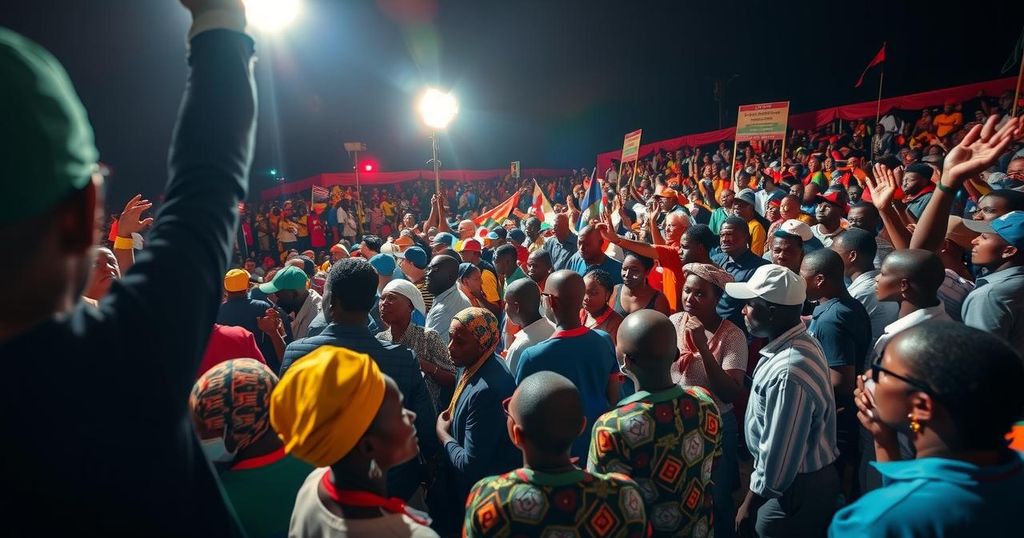Botswana’s Leadership Challenge: Elections Amidst Rising Discontent
Botswana approaches the October 30 elections amid soaring unemployment and declining democratic satisfaction. With 80 percent of citizens perceiving corruption in leadership, the BDP faces scrutiny for failing to address inequalities and economic diversification. As the desire for change grows, a potential victory for President Masisi could further erode trust unless governance shifts focus toward accountability and public welfare.
Botswana is poised for a pivotal election on October 30, 2023, amidst growing unrest and dissatisfaction among its citizens. The nation faces soaring unemployment and a significant decline in satisfaction with its democratic processes, down by 40 percent over the last decade. As concerns regarding corruption escalate, with approximately 80 percent of the populace perceiving corruption within the Presidential Office, leadership must reassess priorities to rebuild public trust and deliver on its commitments, ensuring the continuity of democratic development. Although some challenges, such as the downturn in the diamond industry and worsening drought conditions, stem from external factors, the government has failed to adequately address the pressing issues of inequality and economic diversification. Instead of fostering sustainable growth, these missed opportunities are exacerbated by bureaucratic delays and infrastructure deficits. Increasingly, the integrity of Botswana’s governance is compromised due to rising corruption and judicial interference, threatening its historical reputation for transparency and legal adherence that have attracted international investors. As societal discontent mounts, citizens are yearning for political reform. The Botswana Democratic Party (BDP), which has maintained control for nearly six decades, faces mounting scrutiny as a divided opposition struggles against institutional advantages favoring incumbency. Consequently, a victory for President Masisi appears likely. Nevertheless, if the electorate perceives elections as ineffective for holding leaders accountable or offering viable alternatives, trust in the democratic process will further erode. The protracted rivalry between President Masisi and former President Khama underscores the perception that personal vendettas overshadow national priorities. In light of these developments, it is crucial for Botswana’s leadership to refocus governance efforts on unifying the country and addressing the socio-economic challenges its citizens face. As President Masisi expressed at the Council on Foreign Relations in 2018, “Botswana is much more important than anybody’s ego.” Nonetheless, entrenched egos continue to dominate the political arena, jeopardizing Botswana’s legacy as a model of good governance that effectively utilizes its resources for the benefit of its citizens.
Botswana, distinguished for its remarkable transition from one of the world’s poorest countries at independence in 1966 to a stable, upper middle-income nation, now confronts crucial political and economic challenges as it approaches its next election. A significant portion of the citizenry expresses dissatisfaction with the current government’s handling of issues such as unemployment and corruption. These concerns, alongside external economic pressures like changes in the diamond industry and climate-related challenges, have compounded the urgency for a leadership that prioritizes developmental progress and the restoration of public trust.
In conclusion, Botswana’s upcoming elections represent a critical juncture for the nation. With increasing dissatisfaction regarding governance and democracy, it is paramount that the leadership emerges with a renewed focus on accountability and meaningful policy implementation. Overcoming the challenges of entrenched political egos and systemic corruption will be essential for restoring trust with the electorate and maintaining Botswana’s trajectory as a model for effective governance in Africa.
Original Source: www.africa.com




Post Comment